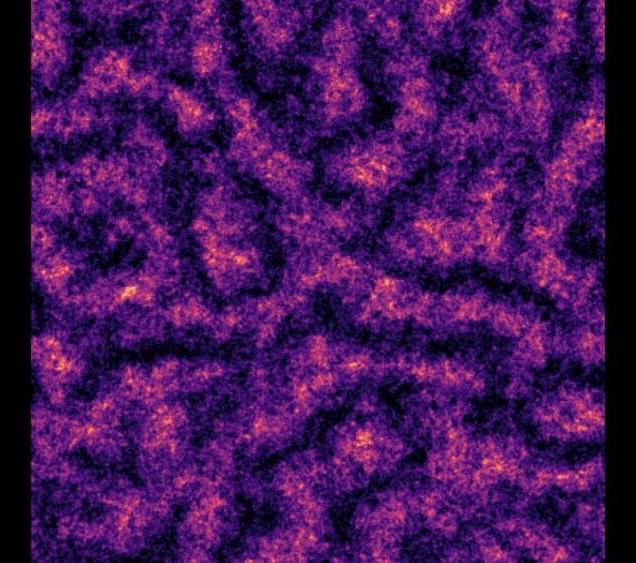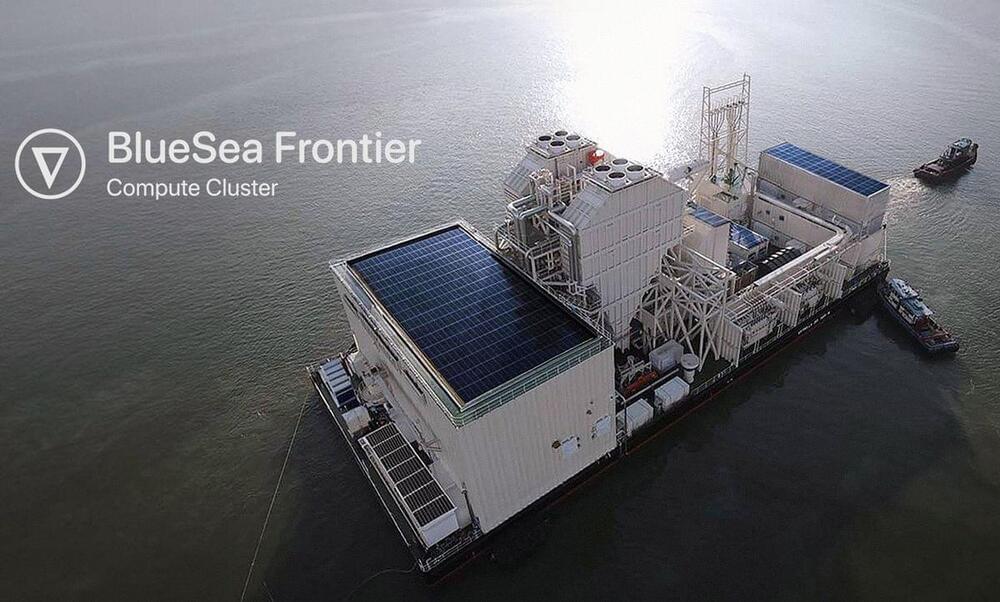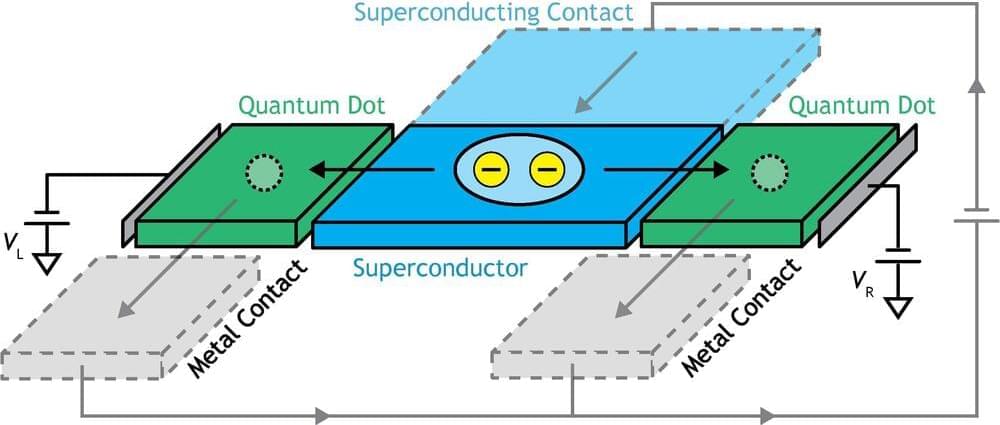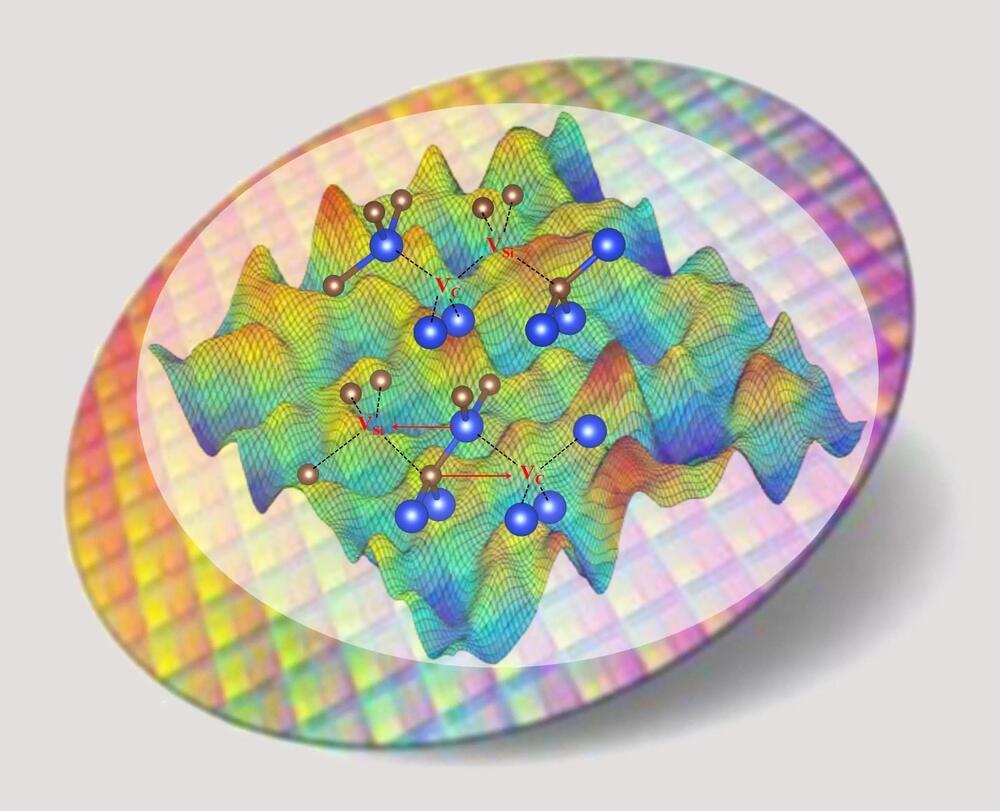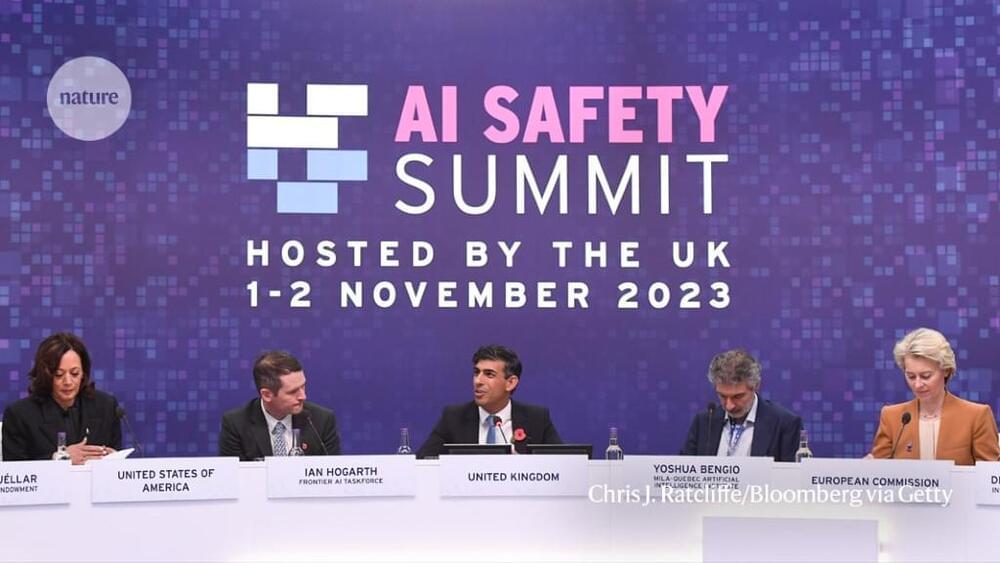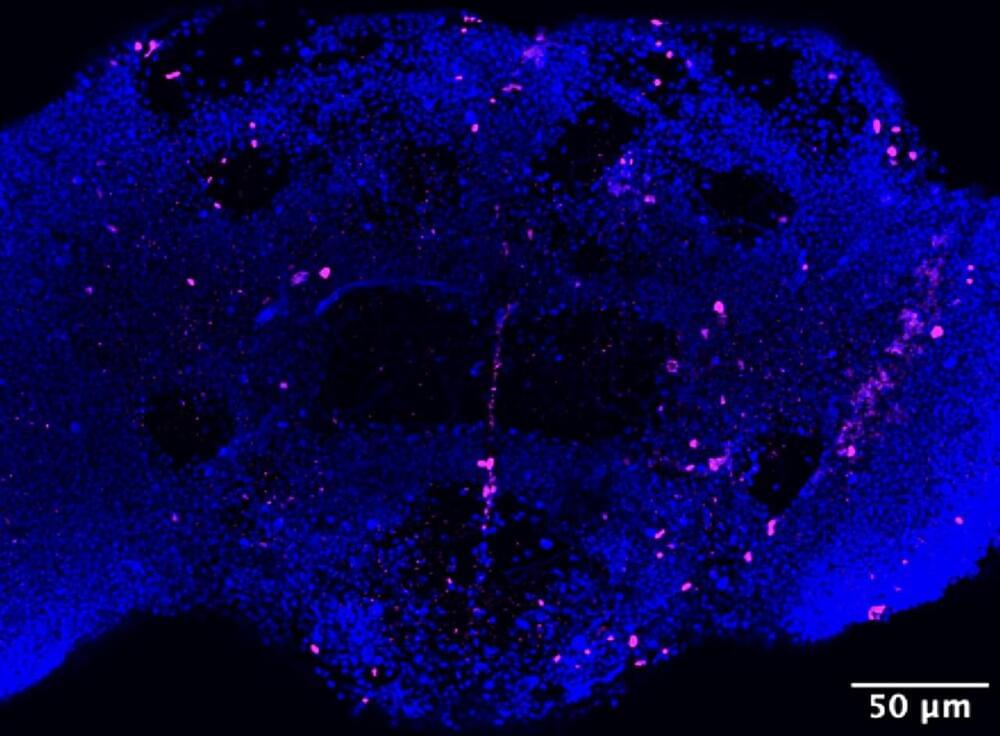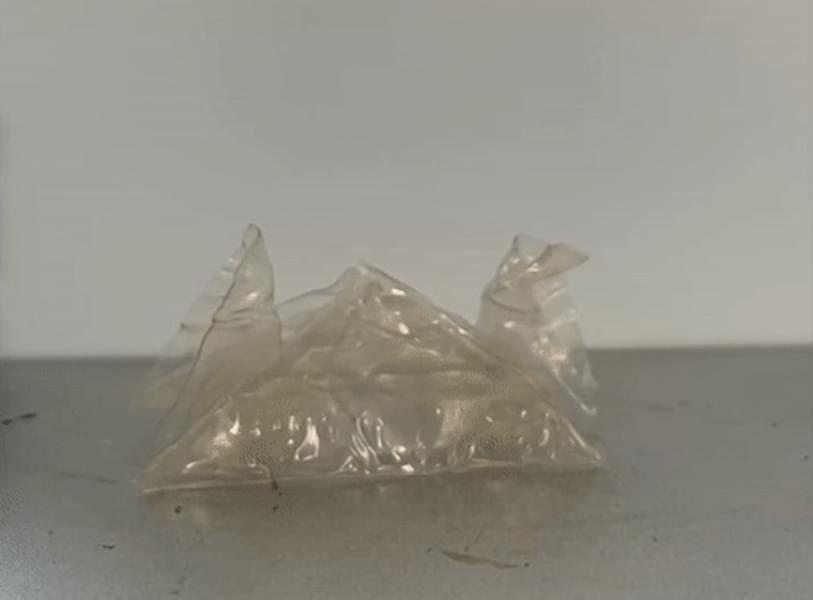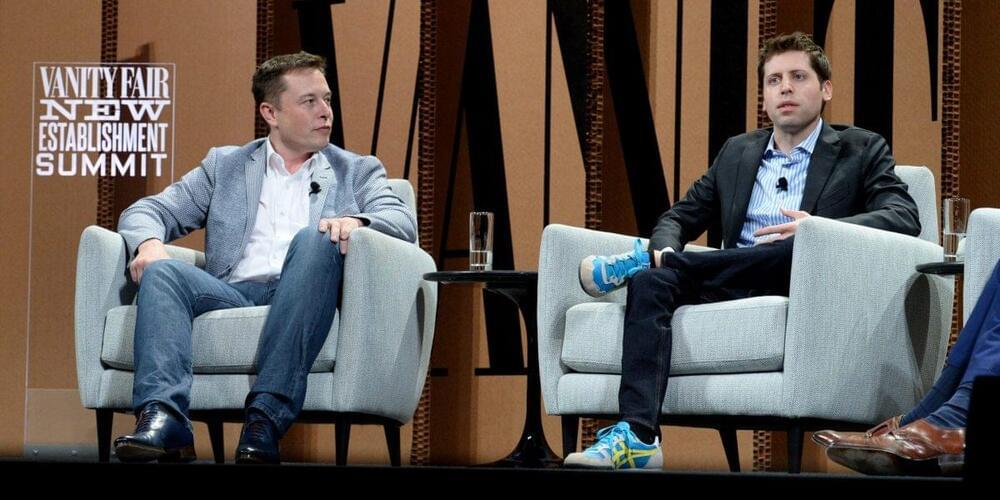Nov 7, 2023
From supersolid to microemulsion: Exploring spin-orbit coupled Bose-Einstein condensates
Posted by Paul Battista in categories: particle physics, quantum physics
In a new study, researchers from the University of California, Santa Barbara, (UCSB) have reported the discovery of a spin microemulsion in two-dimensional systems of spinor Bose-Einstein condensates, shedding light on a novel phase transition marked by the loss of superfluidity, complex pseudospin textures, and the emergence of topological defects.
A Bose-Einstein (B-E) condensate is a state of matter that occurs at extremely low temperatures, where bosons, such as photons, become indistinguishable and behave as a single quantum entity, forming a superfluid or superconducting state.
B-E condensates can exhibit unique quantum properties, such as a spin microemulsion. When the internal spin states of atoms in a B-E condensate are coupled to their motion, a unique phase called a spin microemulsion can emerge.
